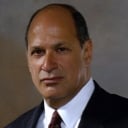Joel Cohen

May 31, 2011 | Law.com
The Confidential Nature of LawsuitsCommentators Joel Cohen and Katherine Helm examine the increasing use of pseudonyms in litigation and the challenge of balancing the public interest against the privacy rights of plaintiffs.
By Joel Cohen and Katherine A. Helm
10 minute read

January 16, 2009 | New York Law Journal
Ethics and Criminal PracticeJoel Cohen, a partner at Stroock & Stroock & Lavan and an adjunct professor of law at Fordham Law School, writes: The preachy ethics of academia and a trial lawyer's real world are often at a variance. Herein the hard question lies: How does a lawyer zealously represent his client when it may cause him to break his word and undermine his reputation for integrity?
By Joel Cohen
12 minute read

August 09, 2011 | New York Law Journal
When a Lawyer Wants (Or Needs) OutIn his Ethics and Criminal Practice column, Joel Cohen, a partner of Stroock & Stroock & Lavan and an adjunct professor at Fordham Law School, writes: While fee disputes are often the reason why lawyers want out of a case, ethical considerations may come into play for a host of other problems that arise during the course of a representation. If the client is not prejudiced by a lawyer's intention to withdraw and the court has no objection, the "no harm, no foul" analysis will typically enable the withdrawing attorney to prevail.
By Joel Cohen
14 minute read

February 09, 2010 | New York Law Journal
Ethics and Criminal PracticeJoel Cohen, a member of Stroock & Stroock & Lavan and an adjunct professor at Fordham Law School, and Katherine A. Helm, a law clerk for a U.S. Court of Appeals judge in Washington, D.C., write that improper ex parte communications are not as uncommon as they may seem, although we only typically find publicized controversy about them in big cases, and remedies are sparse.
By Joel Cohen and Katherine A. Helm
14 minute read

December 06, 2010 | Law.com
Former Judges in Court: When 'Your Honor' Becomes Your ProblemWhat's in a name? Joel Cohen and Katherine A. Helm examine the ethical and professional pitfalls in play when one's courtroom adversary turns out to be a former judge.
By Joel Cohen and Katherine A. Helm
10 minute read

October 04, 2004 | New York Law Journal
Memorializing Client ConversationsJoel Cohen, a partner at Stroock & Stroock & Lavan and teacher of professional responsibility at Brooklyn Law School, writes that the "to the grave" confidentiality that a lawyer may promise his client may actually come with qualifiers.
By Joel Cohen
11 minute read

July 27, 2009 | Law.com
Should Blagojevich's Jury Be Anonymous?An anonymous jury is a highly loaded concept. Yet, nearly every federal and state jurisdiction confronted with the concept has blessed it in practice, write Katherine A. Helm and Joel Cohen. They review the merits and pitfalls of the anonymous jury in the context of the keenly anticipated trial of ousted Illinois Gov. Rod R. Blagojevich, who has been indicted on political corruption charges for allegedly proposing to accept bribes in exchange for Barack Obama's U.S. Senate seat.
By Katherine A. Helm and Joel Cohen
10 minute read
May 29, 2002 | New York Law Journal
Outside CounselT he criminal lawyer, particularly one operating in the pit, comes off to many a client as his prosecutor if not, indeed, his persecutor. Depending on his style or approach, he may literally say, or at least, communicate (in tone), the following to the defendant who absolutely should plead guilty. And assume it is all true, (because accuracy is key to a client`s claim of "coercion"):
By Joel Cohen
14 minute read

April 12, 2011 | New York Law Journal
Revealing Your Client's 'Guilt' When He Sues YouIn his Ethics and Criminal Practice column, Stroock & Stroock & Lavan's Joel Cohen, writes: You litigated your heart out for a client whom you relentlessly claimed to be innocent. But despite your Herculean efforts, the jury simply didn't buy the alibi so poignantly delivered at trial by his girlfriend. After two years in prison, for a variety of reasons largely arising from incorrect rulings by the trial judge, the client gains a reversal, and then decides to sue you for legal malpractice.
By Joel Cohen
16 minute read

July 18, 2008 | New York Law Journal
'Can You Notarize This?' Taking the Notary Job SeriouslyJoel Cohen, a partner at Stroock & Stroock & Lavan and an adjunct professor at Fordham Law School, and Danielle Alfonzo Walsman, an associate at the firm, write: Make no mistake; failure to follow the proper procedures of notarization can carry real consequences. Not only may a notary be stripped of his commission under the New York Executive Law for fraud or taking a statement known to be false, but a notary who is guilty of malfeasance or fraudulent practice is also guilty of a misdemeanor and liable in damages to the person injured.
By Joel Cohen and Danielle Alfonzo Walsman
12 minute read
Trending Stories
- 1Gibson Dunn Sued By Crypto Client After Lateral Hire Causes Conflict of Interest
- 2Trump's Solicitor General Expected to 'Flip' Prelogar's Positions at Supreme Court
- 3Pharmacy Lawyers See Promise in NY Regulator's Curbs on PBM Industry
- 4Outgoing USPTO Director Kathi Vidal: ‘We All Want the Country to Be in a Better Place’
- 5Supreme Court Will Review Constitutionality Of FCC's Universal Service Fund
More from ALM
- Legal Speak at General Counsel Conference East 2024: Match Group's Katie Dugan & Herrick's Carol Goodman 1 minute read
- Legal Speak at General Counsel Conference East 2024: Eric Wall, Executive VP, Syllo 1 minute read
- Legal Speak at General Counsel Conference East 2024: Virginia Griffith, Director of Business Development at OutsideGC 1 minute read



